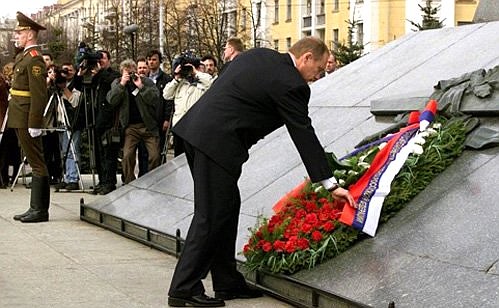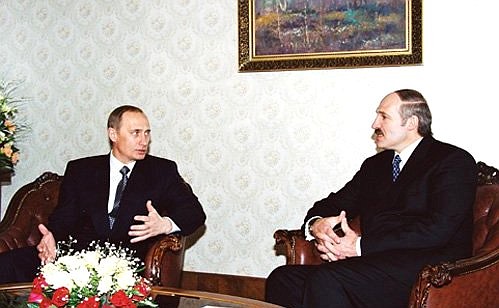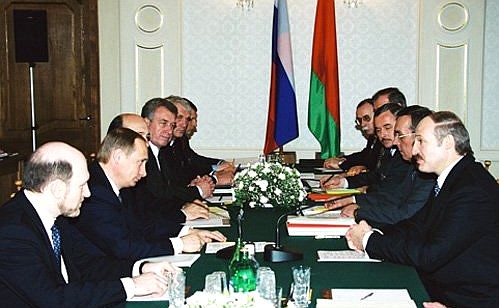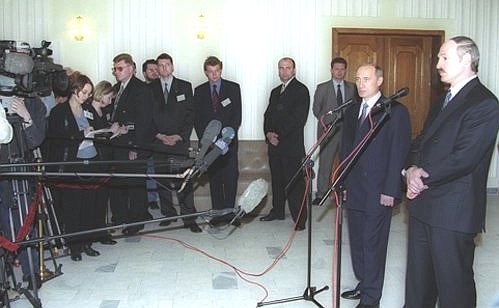The negotiations focused on ways to implement the Union Treaty, preparations for a session of the Union State’s Council of Ministers, and issues encompassing all spheres of bilateral relations.
At a news conference following the meeting, Acting President Vladimir Putin said that during the negotiations the parties had discussed ways to coordinate the two countries’ plans in the economy, politics and defence. The two heads of state reached an agreement on military and military-technical cooperation.
Mr Putin said that a number of agreements could be signed at a session of the Union State’s Council of Ministers to be held on April 25, and at a meeting of the two countries’ presidents to be held in Moscow within the framework of the Supreme State Council.
Regarding the prospects for the Russia-Belarus Union, Mr Putin stressed that the two countries’ defence and political plans could not be built on an unsteady economic foundation. Therefore, the economic vector would be essential for implementing the agreement on the establishment of the Union State. This primarily concerns a common tax policy, a single customs space, and uniform tariff regulations.
The acting president also said that he had instructed Igor Ivanov, the Russian foreign minister to coordinate the two countries’ work in international organisations, such as the OSCE and the UN.
Touching on the United States’ reaction to integration processes in Belarus and Russia, Mr Putin said that the implementation of the Union Treaty was not directed against third countries and could not be used as an instrument of pressure on Belarus or Russia.
Before the talks, Mr Putin laid a wreath at the Victory Monument in the centre of Minsk, Belarusian capital.



